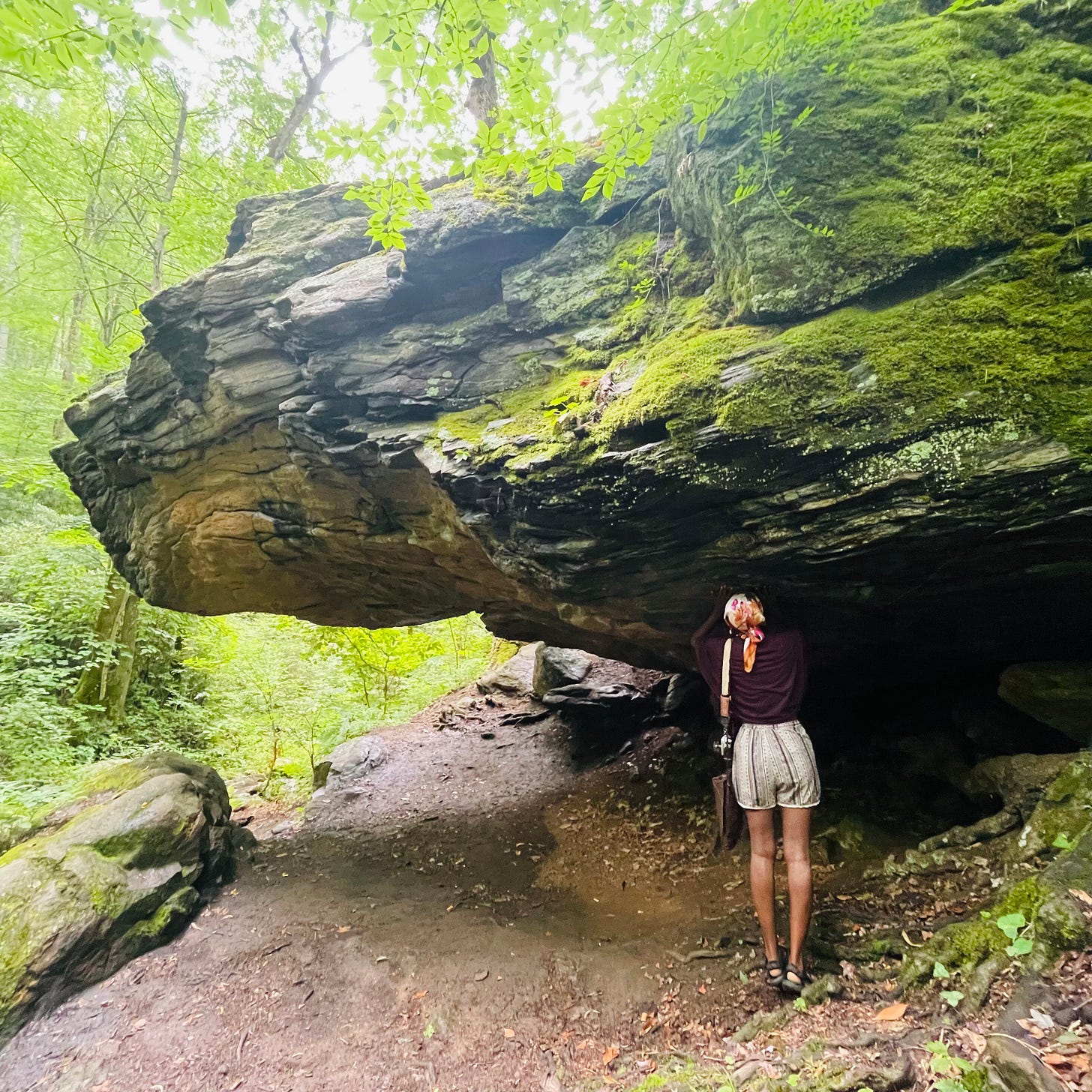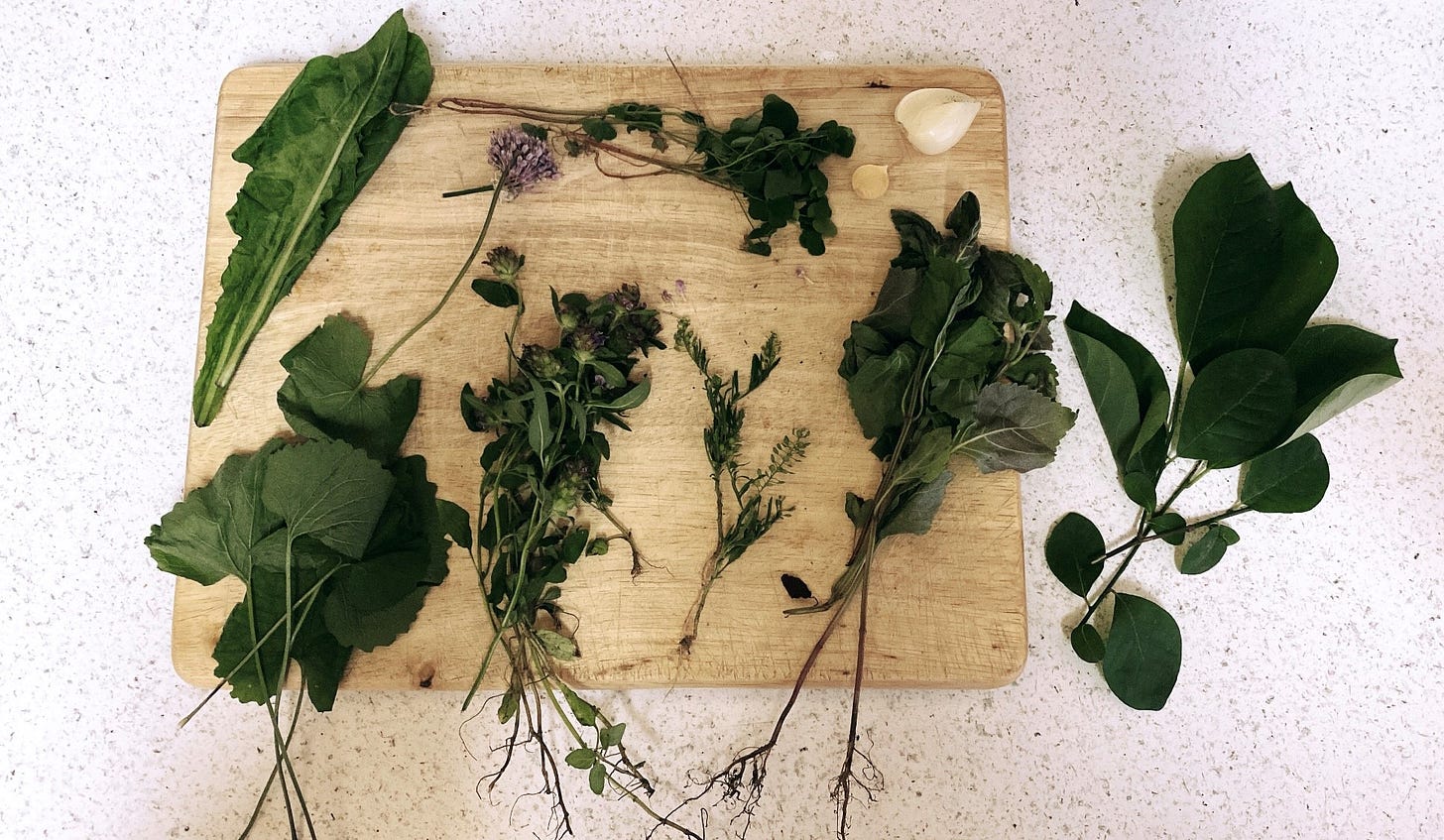Preface: This is an interview I did for the Herbaria Monthly magazine.
Jesse Wolf Hardin: Welcome, Tatiana, it’s so good to have you and your energy a part of the Plant Healer tribe, and to be able to platform your kindred perspective and mission!
Your website is named “Ecologist Says,” unmistakably staking your work and identity in the earth. You do this work at a time when some of our allies are dissing ecology as indulgent or elitist, and the bulk of the population are psychologically detached from nature and place. What led you to your realizations and focus, what is it that defines your medicine and mission?
Tatiana: Thank you so much Wolf for having me. Yeah, my practice, is called Ecologist Says. I came to this name many many years ago and didn’t know what it would blossom into. It was originally a place for me to post my various musings believe it or not, and now has blossomed into this collective with a deeply rooted mission. At Ecologist Says, in partnership with Mother Earth, we provide offerings of holistic teachings, private consultations, & curate plant medicines through the Neteru Apothecary to people looking to connect with the Earth, themselves, and support their physical, mental, and spiritual wellness.
The focus of Ecologist Says is to create the space for us to come home to ourselves, to reconnect with the small voice within, and to learn from the plants and the natural relationships that exist all around us for profound healing. We have such an inherent connection to the earth a tie that cannot be broken, no matter how far away we may feel from the natural world.
I live in Washington D.C. and the reason I am called to do this work here is to change the narrative of ‘us’ verses ‘them’, of people as separate from nature. We are all part of one ‘inescapable network of mutuality’, as the late Martin Luther King Jr. said. Every action we take impacts the whole. In terms of the rhetoric on ecology, we must go back to the foundations. Ecology is a term derived by two Greek words ‘oikos’ which means household and logos means ‘to study’ so ecology translates to the study of our home. This is the foundation.
We must know our home to know how to care for it. We have the inner ecology, the home of our bodies and our spirit, and an outer ecology how we and all of life interact, the external environment.
I come from a western ecology background, I get it. I worked within the realms of western science thinking that it was the only way I could spend all my time out in the natural world, but I was restless, and felt limited by it. By the rigid and definitive nature in which concepts were explained, and how there was no room for that heart connection with the earth, the beauty, the love.
So I left, I took what was useful, and left the rest. I honor that knowledge, and I sought after, learned, and embodied the indigenous wisdom from my ancestors and that of other lineages worldwide that have told a more comprehensive story about Mother Earth and the ecology of the environment. And what I learned was that our ecosystems actually don’t tell tales of scarcity and ‘survival of the fittest’, but of collective care and responsibility that we only learn by taking the time to sit and listen.
Wolf: What was the nature of your earliest meaningful connection to plants and the outdoors, serving as inspiration, refuge, companionship?
Tatiana: I was a very sensitive child. I very much resonate to the body of research on Highly Sensitive People and as a highly sensitive person myself, nature was my refuge. Whenever I felt like the world was too much for me, more than my system could handle I would seek refuge in nature. As a kid I was always in tune with the little things, the quieter more subtle aspects of life, which is why I think people always confided in me, I could tell when someone’s energy was off—a short response, a tense shoulder.
Nature, she didn’t ask anything of me, she filled me up instead, in a way people did not. I was drained by people. I loved being of service and making them feel better, but going out and spending time with the plants, the waters, the birds, the lizards, they are who allowed me to come home to myself when I felt too tangled in the web of being human.
Wolf: What led you from your broad study of the natural world, to plants. Or were plants your earliest wild association, from which you branched out?
Tatiana: I think that all of my previous work were just stepping stones to lead me here. I believe that all of life is sacred and beautiful and can teach us so much about ourselves. But I guess the short answer of why I work with the plants specifically is that this is my calling, my mission here on this planet is to be in service to them.
The longer answer is that they are the little heroes of the world and deserve more recognition and respect. They do so much for us, and we take them for granted. Not only do they give us our breath, but all of our food comes form them directly and indirectly. They make up 99% of all living organisms on this planet, AND they really want to work with us, they want to help us so badly, but we have such a hard time slowing down enough to hear them.
Wolf: What can the plants tell us about themselves, about life and land, and about ourselves as well?
Tatiana: Wonderful question. All plants are teacher plants, they are our older siblings in creation, the elders—they initiate us into what it means to be truly human and in right relationship with the flow of life. All plants carry a unique signature, just as humans are unique, all of life carries specific qualities and abilities, an energy, a vibration, a lesson. In my work I focus on the intuition and reconnecting us to our heart space, so we can hear this wisdom more clearly. By working through the heart, we connect with the soul and gain access to the universe and our soul path and purpose.
Plants only know authenticity, and each provide us with lessons and blueprints to follow to remind us of our core essence, to help us shed the layers separating us from who we are at our core. Now on a very simple level what I mean by ‘blueprint’ is that plants and their medicine can be used to return the body, mind, and spirit to a state of natural balance so that we can heal ourselves. They give our bodies, our brains, and/or our energetic field a chance experience balance and congruency to remind us what it feels like to be in this state of wellness, and how to better maintain this state.
Wolf: When it comes to herbalism in particular, what are some the reasons it is so important to understand, utilize and honor the “natural” in “natural healing”?
Tatiana: I think Western Medicine has its place, right? As an herbalist the first thing I tell people that are curious about herbal medicine is not to just stop taking all of your prescription medication or swear off doctors completely, right? Like if you’ve broken your arm or you have some very acute injury please go to the doctor. But we have this culture that encourages us to seek external authorities to validate our experiences and I think that’s very dangerous. Especially because doctors can be wrong and not to mention that big pharma is not in the business of healing anyone. They love when you have to take some medication for the rest of your life and pay them forever.
It’s important to remember our power as individuals to not only trust yourself first about what is going on with your body and what’s true of your experience, but to treat our bodies well. We often take them for granted for all that they allow us to do each day. It’s truly magic if you think about it. And when we remember the wisdom, the medicine, of the plants we become sovereign over our own wellness. We become more in tune with our bodies’ needs and can help ourselves remain in wellness and not just band-aiding symptoms for the rest of our lives.
This is ancestral knowledge. This is our birthright—to know how to be in right relationship with the land and heal ourselves. This knowledge is the only reason that our ancestors survived, the reason that we are all here today and this was stolen from us in so many ways, but there are such powerful lineage and wisdom holders keeping that torch alive. To belittle this knowledge is terribly unwise and frankly won’t allow us to survive for much longer if we continue to do so.
Wolf: Certain of the most helpful and hopeful indigenous traditions provide lessons, foster connections, and encourage values much the same as what the natural world teaches, such as: The primacy of the living earth. Gaia, Pacha Mama. Active interdependence. Respect and conservation.
Tatiana: Yeah, my knowledge is grounded in traditional Yoruban, Kemetian, Andean, and Potawatomi teachings and wisdom and they all tell similar stories of the sacredness of life and the importance of respect and care of the natural world. When you take care of someone, they take care of you in return.
Wolf: What are some of the ways that you personally identify with culture(s), and how might these challenge and/or inform and aid the life work you are doing? What do you believe is the role of traditional and contemporary cultures when it comes to the evolution of the human and planetary bodies, and to the health and evolution of one’s spirit?
Keep reading with a 7-day free trial
Subscribe to Ministry of Neteru to keep reading this post and get 7 days of free access to the full post archives.






